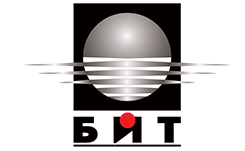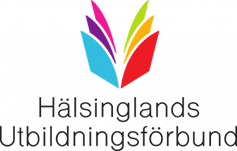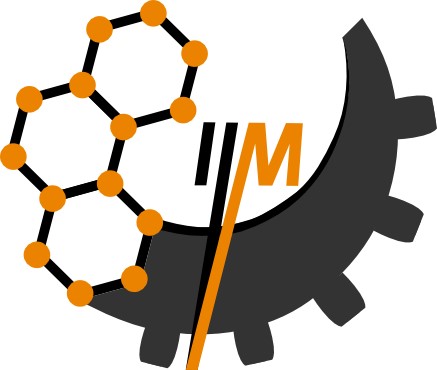Project Aim
About the project details
Within the project, the main target groups (students and their teachers in vocational subjects), are subject to in-depth analysis. Through the survey conducted simultaneously by all units participating in the project, the currently used approaches in vocational education, the scope of the didactic forms used, as well as educational needs taking into account both ecological and business aspects are verified. The Design4Climate project uses design thinking as a methodology supporting effective teaching and learning. The project realization covers, among others, lesson scenarios taking into account: elements of gamification, stimulating the deepening of knowledge and involvement of students, familiarization of participants with the goals of sustainable development or validation of the developed solutions in terms of industrial, ecological, social and innovative aspects. An important forthcoming result is the developed e-learning platform supporting the acquiring buisness, soft and pro-sustainable skils. It will be a place to easily find and use tools that will develop competences in the field of green economy among students. Design4Climate will also support the integration of proposed design thinking and ecological aspects into learning through good practice guidelines for teachers.
The Design4Climate project - “Addressing Climate Change through Design Thinking for a Green, no Waste Economy” is implemented over a period of 24 months from October 2020 to September 2022 as part of the Erasmus + project in Action 2. Strategic Partnerships in the Vocational Education and Training sector. The leader of the international project consortium is the Lodz University of Technology, which cooperates with 4 other European educational units - University of Thessaly in Greece, University of Library Studies and Information Technologies in Bulgaria, Halsingland Education Association in Sweden and Agrupamento De Escolas De Silves in Portugal.
Within the project, the main target groups (students and their teachers in vocational subjects), are subject to in-depth analysis. Through the survey conducted simultaneously by all units participating in the project, the currently used approaches in vocational education, the scope of the didactic forms used, as well as educational needs taking into account both ecological and business aspects are verified. The Design4Climate project uses design thinking as a methodology supporting effective teaching and learning. The project realization covers, among others, lesson scenarios taking into account: elements of gamification, stimulating the deepening of knowledge and involvement of students, familiarization of participants with the goals of sustainable development or validation of the developed solutions in terms of industrial, ecological, social and innovative aspects. An important forthcoming result is the developed e-learning platform supporting the acquiring buisness, soft and pro-sustainable skils. It will be a place to easily find and use tools that will develop competences in the field of green economy among students. Design4Climate will also support the integration of proposed design thinking and ecological aspects into learning through good practice guidelines for teachers.
Project consortium
Lodz University of Technology (TUL), DT4U team
project coordinator

DT4U group (www.dt4u.p.lodz.pl) has existed at Lodz University of Technology since 2013. In 2013 the first creative workspace (DT4U - Design Thinking Workspace) was created at TUL Department of Mechanical Engineering. From that time, similar workspaces have been opened at all TUL’s faculties. DT4U group consists of academics and PhD candidates that work at 3 different faculties. All group members have significant experience in Design Thinking methodology and Problem Based Learning. Thanks to the previous projects, DT4U members gained valuable skills and competences in DT (they attended "DT Masterclass for Tutors") and European project management. DT4U members are specialists in DT and PBL methods thanks to numerous workshops and internships. DT4U team continuously raises qualifications in innovative teaching methods during students' project, workshops, trainings, educational project realizations and conferences. Currently, the team is involved in EduBUP Project Change (educational project coordinated by Baltic University Programme) and in local programme for TUL’s academic teachers (DT4U leads workshops in Design Thinking in higher education for academic teachers).
DT4U - Design Thinking Workspace on Facebook.

University of Thessaly (UTH), CTLL team
partner
University of Thessaly has a unique lab - Creative Technologies Learning Lab (https://ctll.e-ce.uth.gr/). The Creative Technologies Learning Lab focuses on integrating emerging digital technologies and pedagogies towards enriching learning experiences for diverse groups. The lab deploys technologies that include serious games, simulations, learning platforms, communities, and more towards more effectively addressing learning objectives in formal or informal learning settings. These technologies support innovative learning design based on active, experiential, explorative, collaborative, peer, and other models. The proposed solutions address the differing needs of user groups ranging from pre school and primary to secondary, higher, vocational, and professional education.

State University (ULSIT)
partner
ULSIT team teaches as it preaches. Learning by doing is its main goal. The team provokes students and develops their knowledge and skills combining the competence-based learning with flipped and nugget education and different innovative learning approaches. Gamification is part of them some of the courses. The students' tasks are real projects.
The ULSIT team members are part of different International projects. Some of our educational projects mostly under the Erasmus+ programme are:
- IoT security nuggets (nugget education) 2018-1-BG01-KA202-047919;
- Information Literacy a Game-based Learning Approach for Avoiding Fake Content 2017-1-BG01-KA203-036383;
- Design thinking for digital innovation, 2016-1-BG01-KA203-023719;
- Empowering Literacy in Adolescents through Creative Engagement with Comics (Comics and storytelling)2016-1-BG01-KA201-023657;
- Action Project for Innovation (fostering the collaboration between business and universities ) 2014-1-BG01-KA203-001561;
- EQF-based professional ICT training for Russia and Kazakhstan (combination of competence-based learning and elearning) 543808-TEMPUS-1-2013-1-BE-TEMPUS-JPHES.

Halsingland Education Association (HEA)
partner
Halsingland Education Association (HEA) or Hälsinglands Utbildningsförbund (HUFB, www.hufb.se), is a public authority, non commercial collaboration between three municipalities in the county of Hälsingland, Sweden (Bollnäs, Söderhamn, Nordanstig). In the HEA the municipalities cooperate around education and VET on various levels from secondary level for youth, adult education, post secondary VET and higher education. The municipalities within HEA organises education and vocational training for about 5 000 students per year, since the founding in 2015.
The Staffan upper secondary school and the Torsberg upper secondary school provides education and training for 900 students (16-19 years old) in different 3-year programs, both VET programs and more general programs focused on pre university education. The HEA has participated in numerous projects funded by the EU/ESF all related to lifelong learning and how LLL can be organised in rural areas. The HEA cooperation also focuses on R&D about for example distance learning using ICT technology and appropriate pedagogical methods.
The HEA is the national resource centre for UNESCO/UNEVOC: the UN collaboration between VET providers in the world, about 200 centres established bridging north and south together for mutual development of VET.
The HEA is the only public education provider in Sweden that is accreditated by the Europeactive (www.europeactive.eu) to train and certify PT (Personal Trainers and Group Fitness instructors).
The HEA is appointed by the SKILLMAN (www.skillman.eu) as a national CoVE (Centre of Vocational Excellence).

The Grouping of Schools of Silves (AES)
partner
The Grouping of Schools of Silves (AES) was formed on July 3, 2012 and consists of four Kindergartens; six Primary Schools; two lower secondary schools and a secondary school which is the headquarters of the Silves School Group. The current silves secondary school building dates from the school year 1959-1960, but the school as an educational institution itself has been active since 1920.
In 2012 the school building began a renovation process, having remained as it is today.
With a school network from kindergarten to 12th grade, it allows students from their own county or neighboring counties to finish their pre-university studies. These Schools have a culture of proximity to the region and community and present several internal and other educational projects involving local community and complement the curriculum, such as artistic activities, sports, competition, civic and personal development activities.
At Secondary school, the students can choose to study Science, Languages, Socio Economics, Art, or Vocational Education Training (VET) such as Computer Systems, Health Assistant, Multimedia, Renewable Energy, Catering, Sports, Tourism and Electrical Facilities. In addition, the school offers Adult Education and Training classes and Short-Term Actions that play an increasing role in offering education from school. Given the profile of these students whose vocation is directed to a more practical and experimental learning and to the acquisition of knowledge and skills, these courses give them the support they need to be able to enter the world of work more easily.

